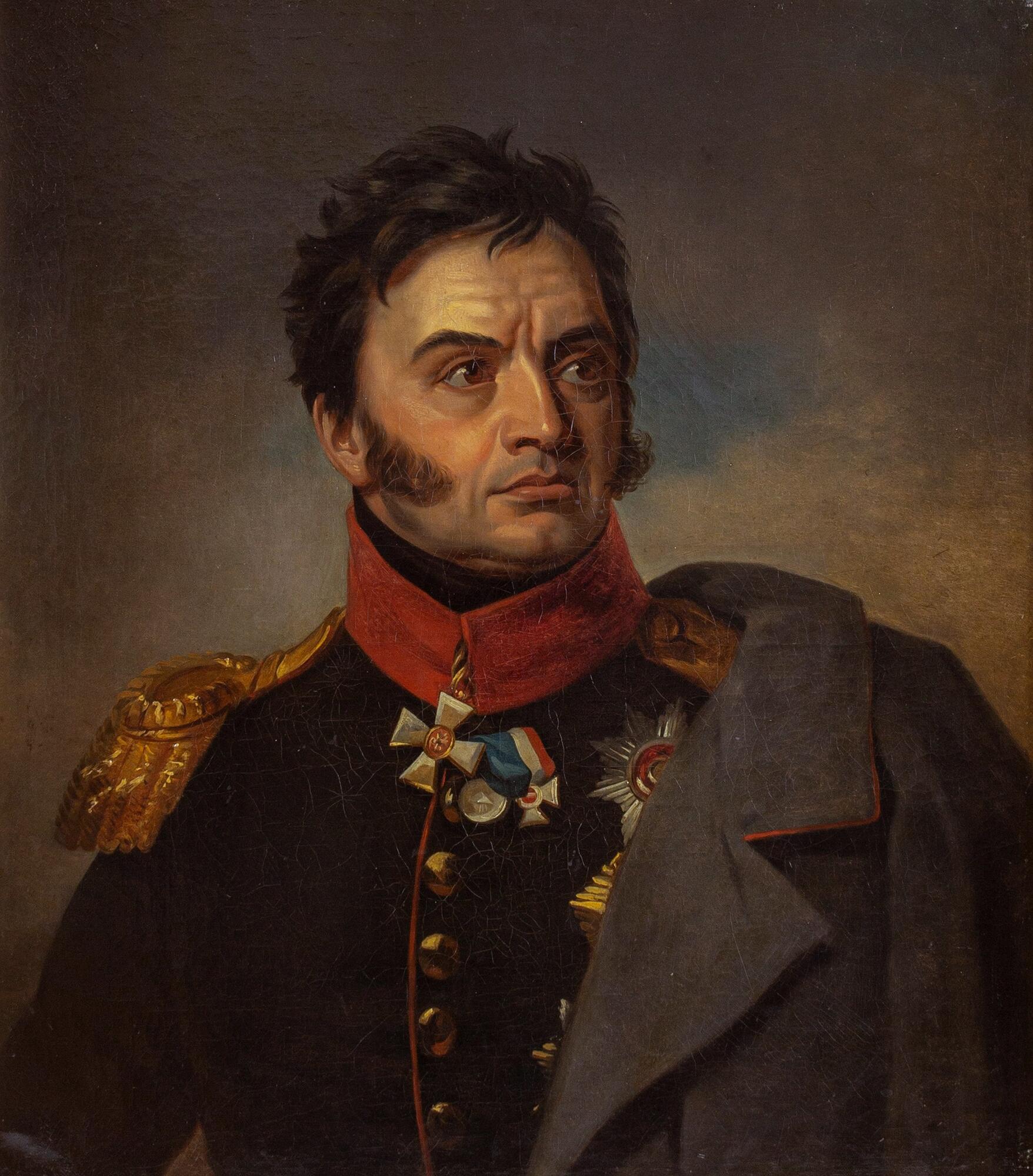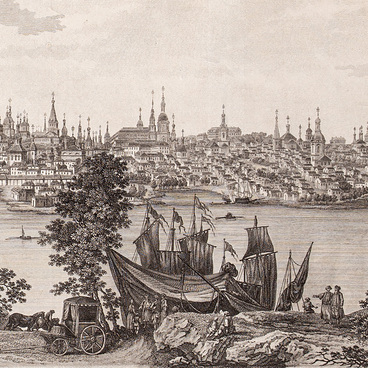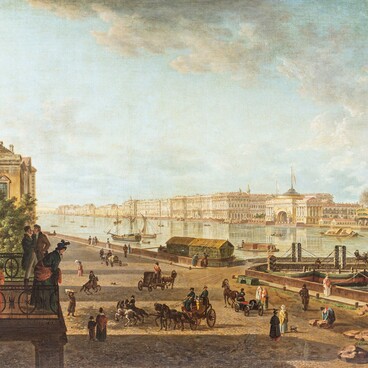Nikolay Nikolayevich Raevsky Senior
I did not see in him a hero, the pride of the Russian army; I loved in him a man with a clear mind, with a simple, beautiful soul; a lovely, caring friend, always a sweet, affectionate master. A witness of Catherine’s reign, a monument of 1812; a man without prejudice, with a strong character, a sensitive man, will naturally win over anyone who is worthy of understanding and appreciating his high qualities.
Ten years later, in a letter to Alexander von Benckendorff, he would call the general a “great man”.
Nikolay Raevsky began his military career under Catherine II. He was dismissed from service under Paul I but reinstated by Alexander I. Under Nicholas I, Raevsky became a member of the State Council. In the portrait, the stars of the highest orders are almost hidden by a greatcoat, which emphasizes the rare modesty of the general, noted by his contemporaries and highlighted by the artist.
The close acquaintance of General Raevsky and Pushkin was preceded by the following events. In 1820, by order of Alexander I, the poet was sent away from both capitals, and there were reasons for that. The emperor wrote,Pushkin should be exiled to Siberia: he has flooded Russia with outrageous poems; all the young people know them by heart.
Nikolay Karamzin, Vasily Zhukovsky, as well as Pushkin’s superior in the service, Minister of Foreign Affairs Ioannis Kapodistrias, rushed to help the young rake. As a result, Pushkin was transferred to Yekaterinoslav to serve under Lieutenant General Ivan Inzov, the trustee of the colonists of the south of Russia and the governor of Bessarabia. When Pushkin arrived, he swam in the Dnieper and subsequently fell ill with a fever. General Raevsky with his son Nikolay and two daughters, Maria and Sofia, were traveling to the Caucasus at that time and, with Inzov’s permission, took Pushkin with them. Thus, Pushkin made the first great journey in his life with the family of General Raevsky. This trip lasted four months, the Caucasus and Crimea were ahead.


